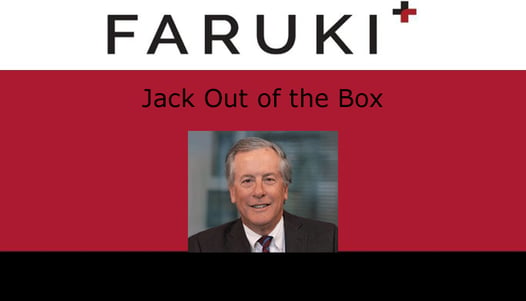- October 10, 2023
- Jack Greiner
- Jack Out of the Box

Not all wins in Las Vegas happen at casinos. The media recently won a victory there vindicating a newspaper's privilege to protect its editorial materials.
The case arose from tragic circumstances. A reporter for the Las Vegas Review-Journal newspaper named Jeff German was stabbed to death outside his home on September 4, 2022. On September 7, police arrested Clark County public administrator Robert Telles in connection with the murder. Telles had lost his re-election bid in the Democratic primary, and may have blamed the loss on German's reporting on allegations that Telles was involved in an inappropriate relationship with a member of his staff.
As part of its investigation, the Las Vegas Police Department obtained and executed a search warrant compelling the Journal-Review to turn over electronic devices and other property belonging to German. The Journal-Review thereafter asked a court to order the return of the seized materials, on the grounds that they were privileged under Nevada law.
The court initially entered an injunction prohibiting the police from inspecting the seized materials. But later, the court dissolved the injunction and allowed the police to search the materials following a protocol where the police and prosecutor searched the materials and then notified the Journal-Review when they came across privileged materials. The Journal-Review challenged this cart before the horse process and the Supreme Court found in its favor.
As the Supreme Court noted, the Nevada privilege provides that "[n]o reporter, former reporter or editorial employee of any newspaper, periodical or press association" may be forced to disclose information gathered in the person's professional capacity or the source of any information gathered. The language doesn't leave much room for argument, but the police contended that the privilege no longer applied after German's death. The Court was unpersuaded. As it noted, "[t]o hold that the privilege . . . ends with German's death is not required by the statute's plain text and would be directly contrary to the statute's purpose."
But the Court noted that the privilege is not absolute. The privilege must yield when another's person's constitutional rights are at stake. Here, Telles, the accused murderer, had a Sixth Amendment right to a fair trial, and withholding the materials may have infringed on that right. For this reason, the Court ordered a different protocol. Under the Court's order, a Special Master and Assistant Special Master would review the materials and make an initial determination whether the materials were privileged. The police would not see the materials until after the privilege issues were decided. This was an alternative to the process of allowing the police to review the materials, which the Court described as leaving the government's fox in charge of the Journal-Review's henhouse.
A robust privilege for newsgathering is essential to a free press. The privilege to not name sources is absolutely critical to the mission of the press. And while that privilege may be limited under appropriate circumstances, the notion that the government should see the materials first is absurd. This was a good result emerging from tragedy.
